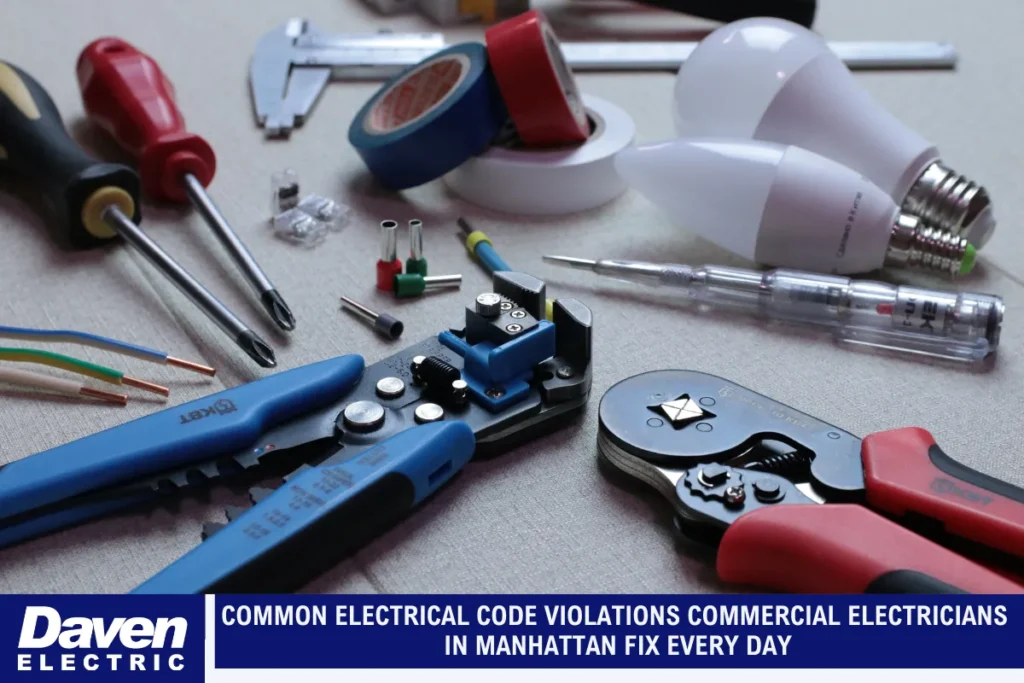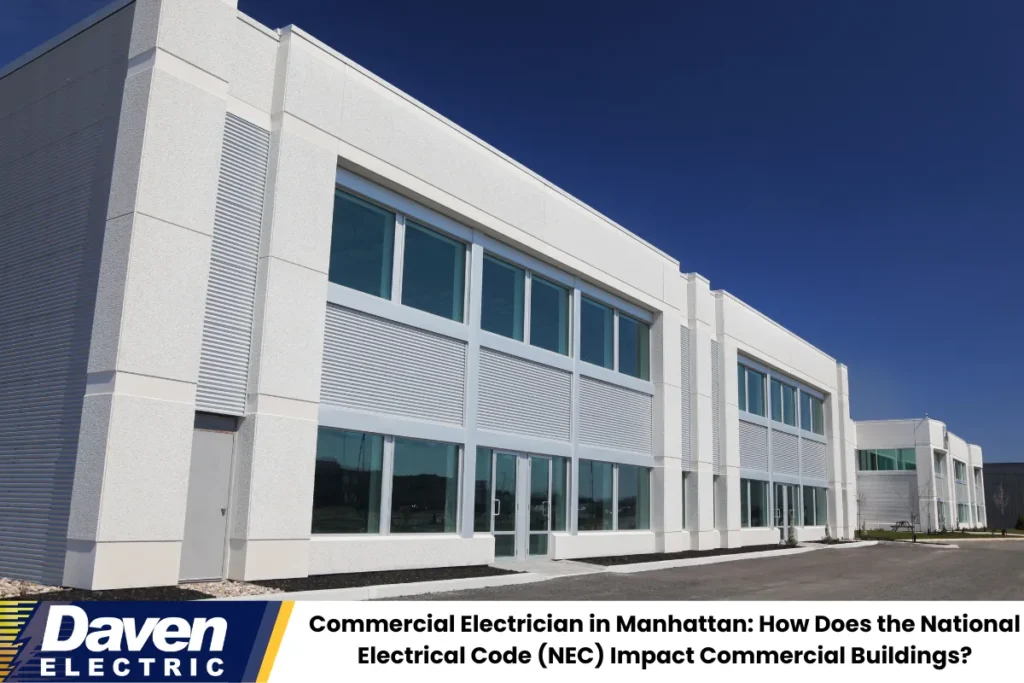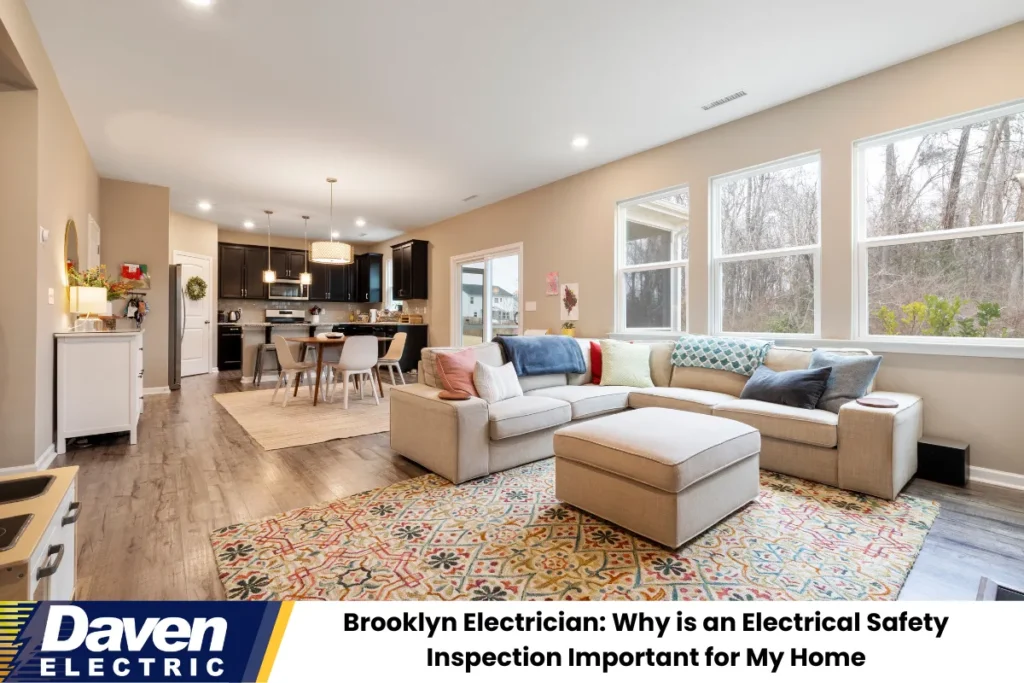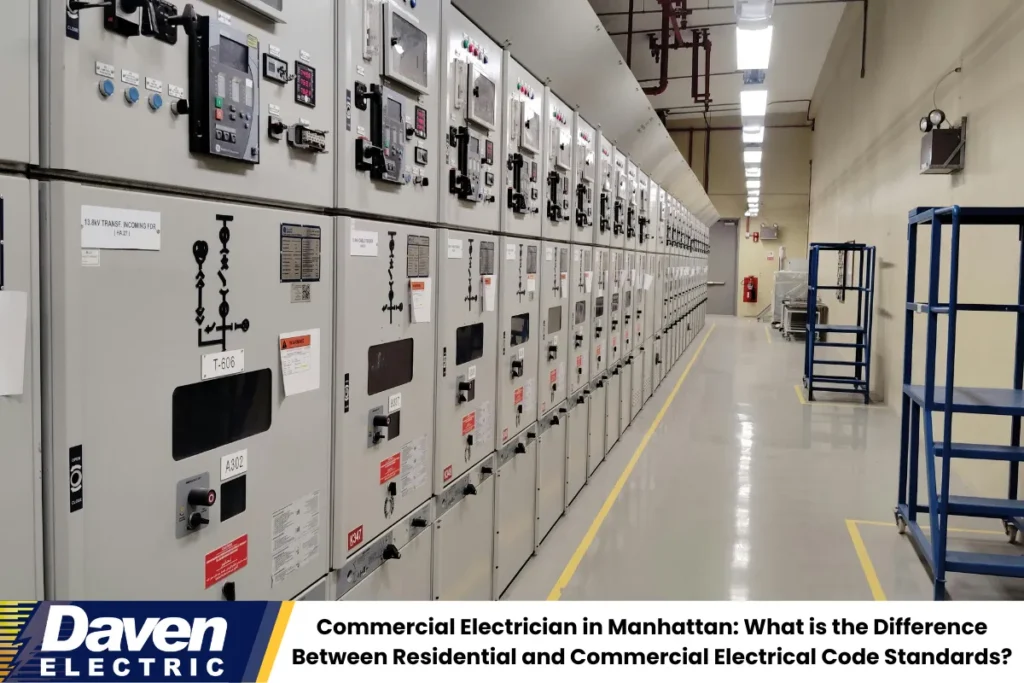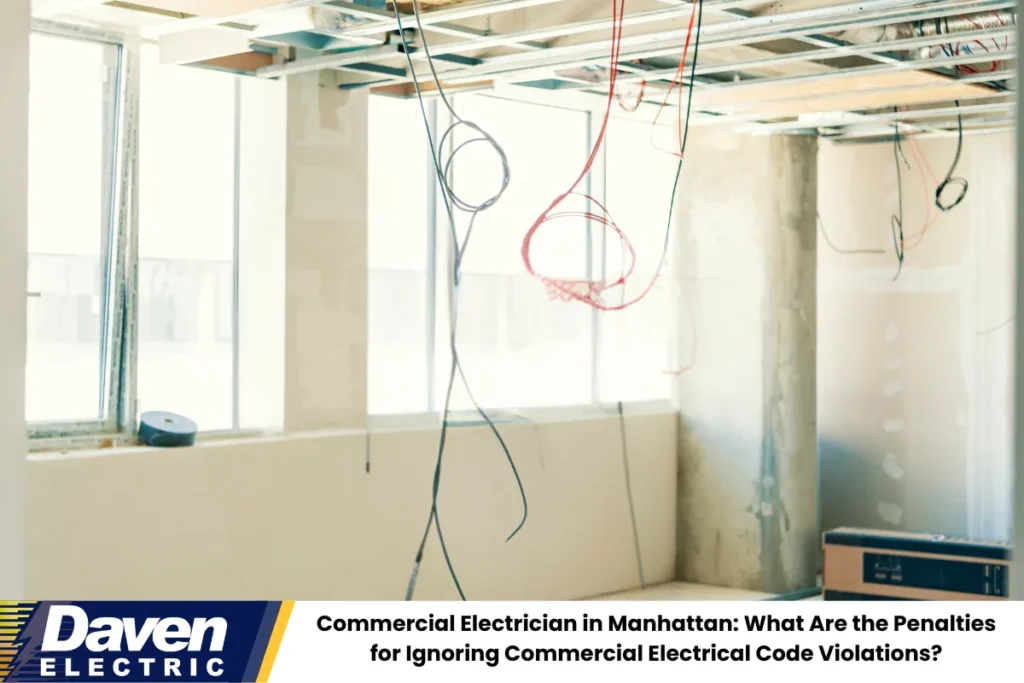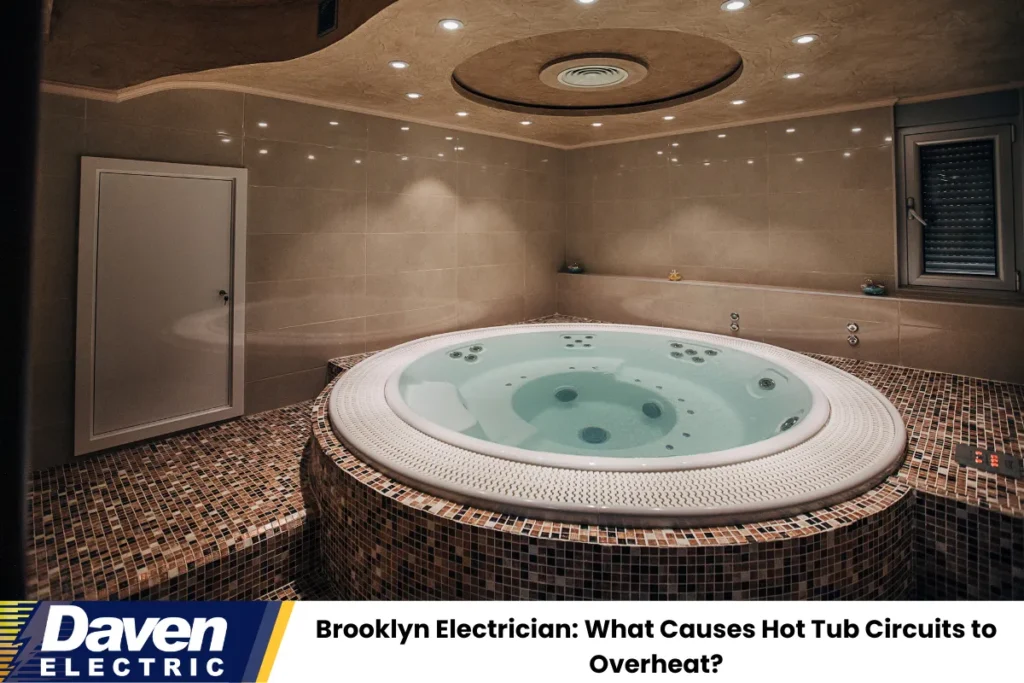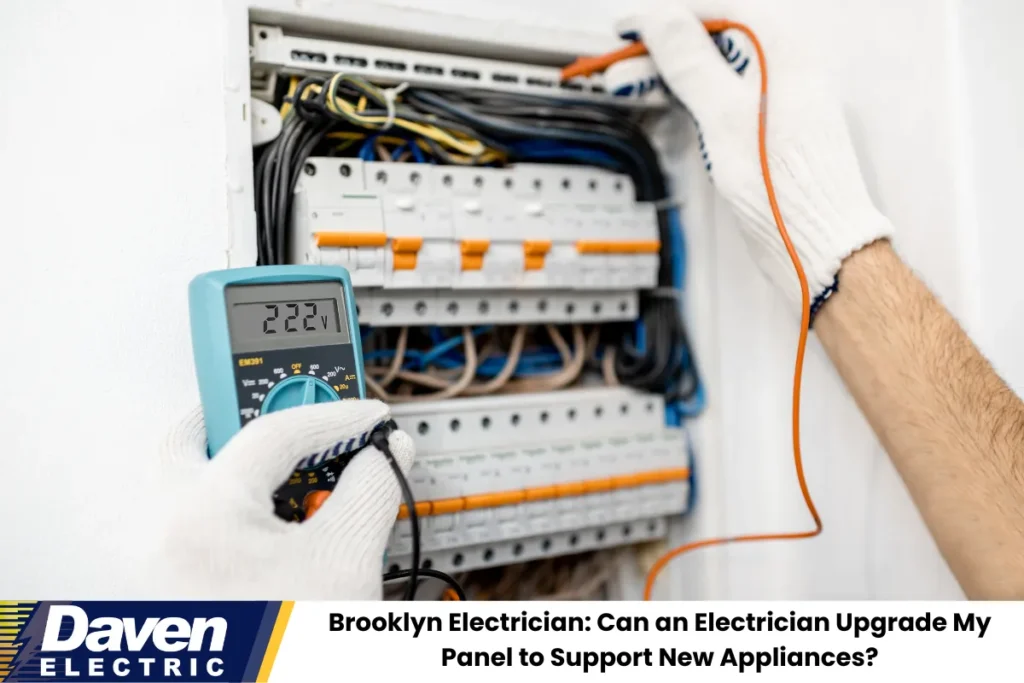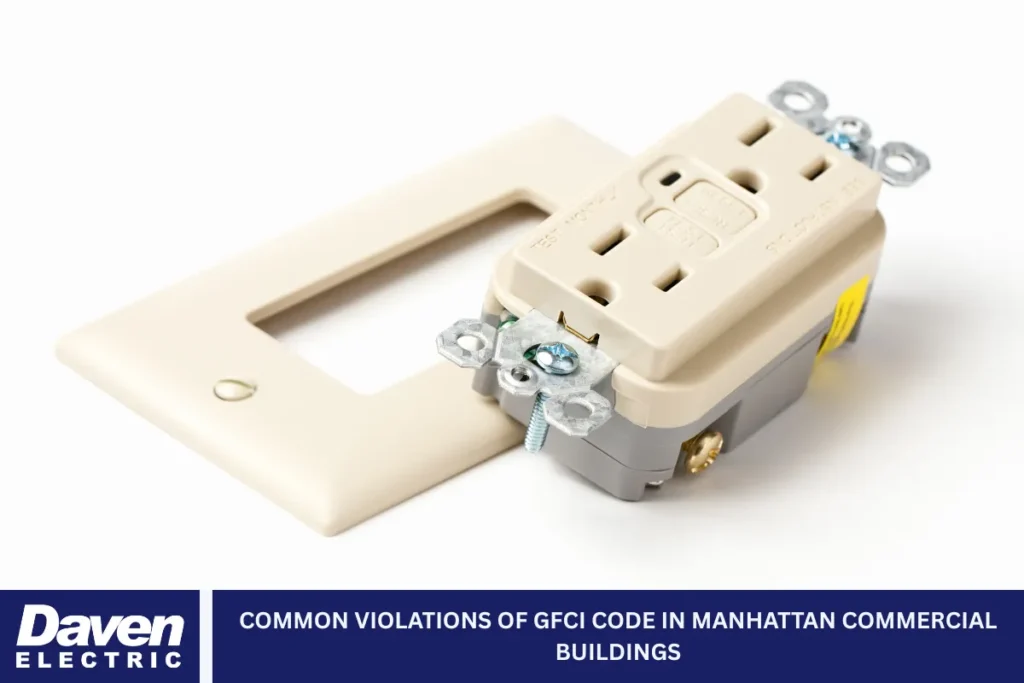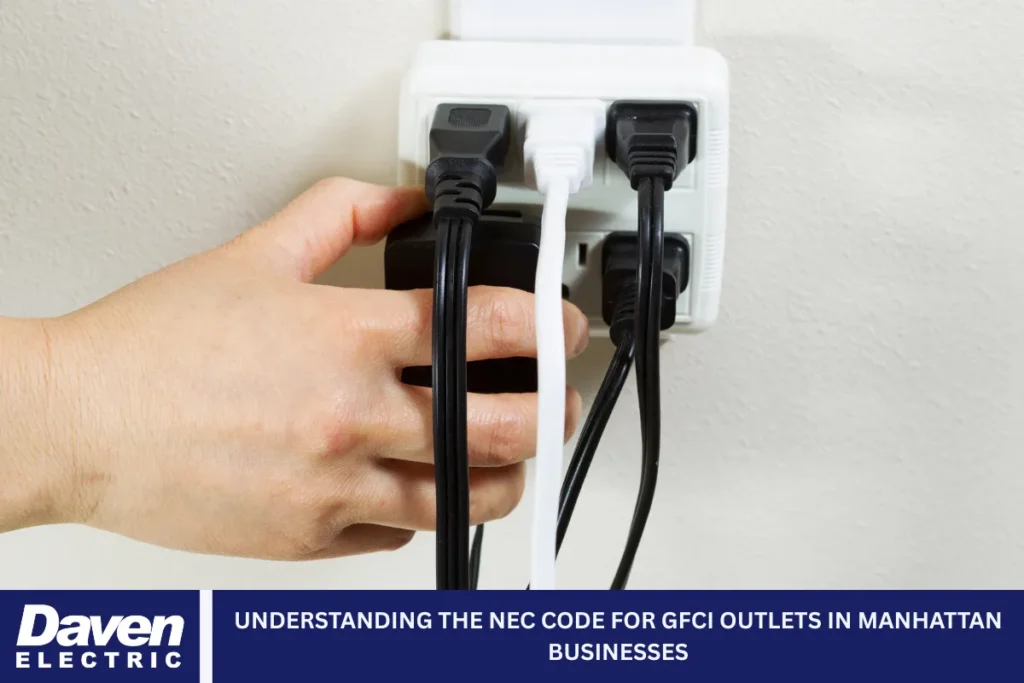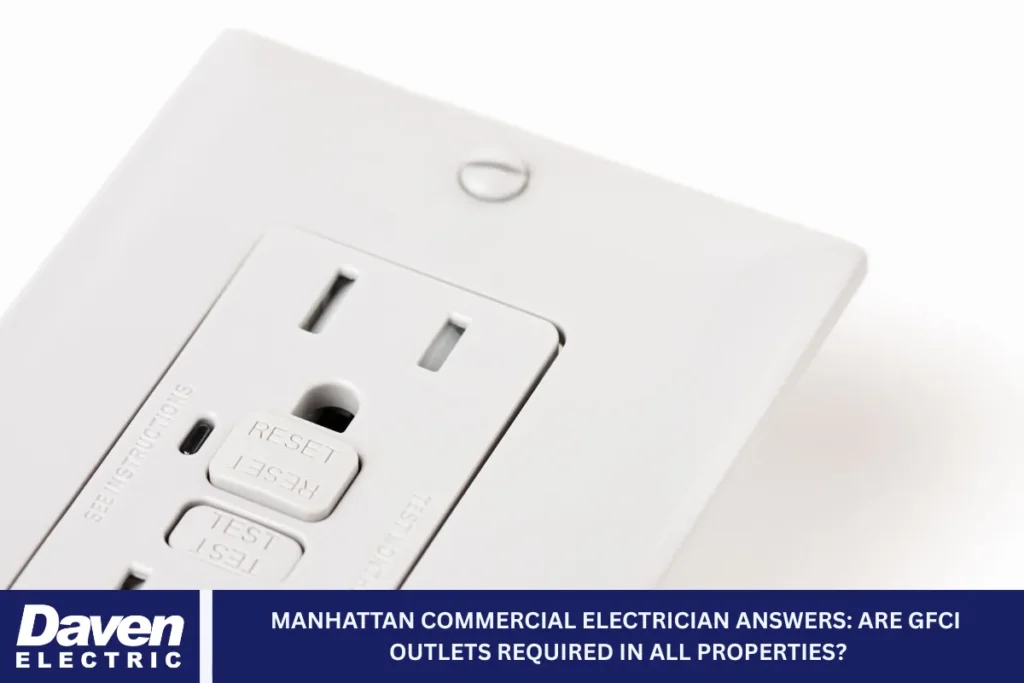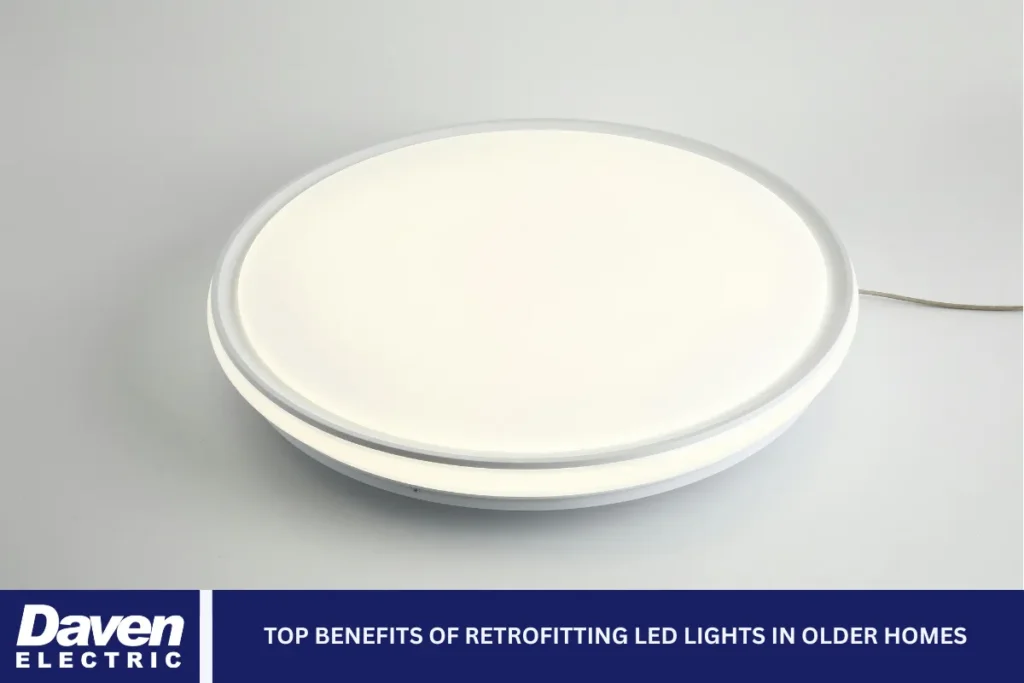Commercial electrician services play a crucial role in ensuring Manhattan’s businesses operate safely and in compliance with regulations. In a city packed with high-rise offices, restaurants, retail stores, and industrial spaces, maintaining proper electrical systems is not just a suggestion—it’s a requirement. Each day, commercial electricians in Manhattan encounter a range of electrical code violations that pose risks to properties and individuals. These issues are more common than most building owners realize, and left unfixed, they can lead to serious hazards and costly fines.
This article explains the most frequent code violations found in commercial properties, why they happen, and how licensed professionals correct them. Suppose you’re managing a commercial space in Manhattan. In that case, understanding these problems can help you maintain compliance, prevent interruptions, and ensure the safety of everyone involved.
Understanding the National Electrical Code (NEC) and Its Role in Manhattan
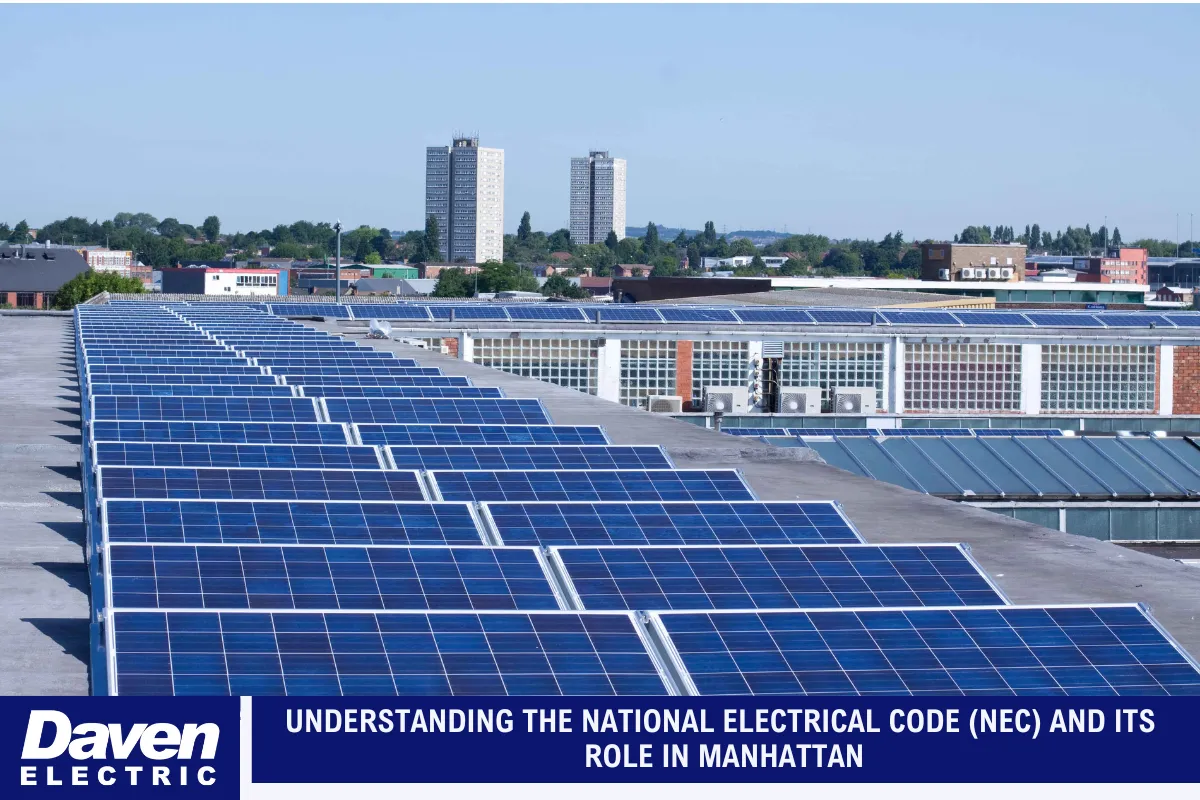
The National Electrical Code (NEC) is a set of standards that governs the safe installation of electrical wiring and equipment across the United States. Every city, including New York City, follows these regulations, sometimes adding its modifications. The NEC is updated every three years to keep up with advancing technology and updated safety practices.
In Manhattan, commercial electricians must not only follow the NEC but also comply with additional rules from the New York City Electrical Code. This means that even a small wiring mistake could violate multiple regulations. These codes encompass a wide range of topics, including wire types and grounding, panel access, and emergency lighting. Ignoring or misunderstanding the rules can lead to dangerous working conditions, failed inspections, or penalties from the Department of Buildings.
Overloaded Electrical Circuits
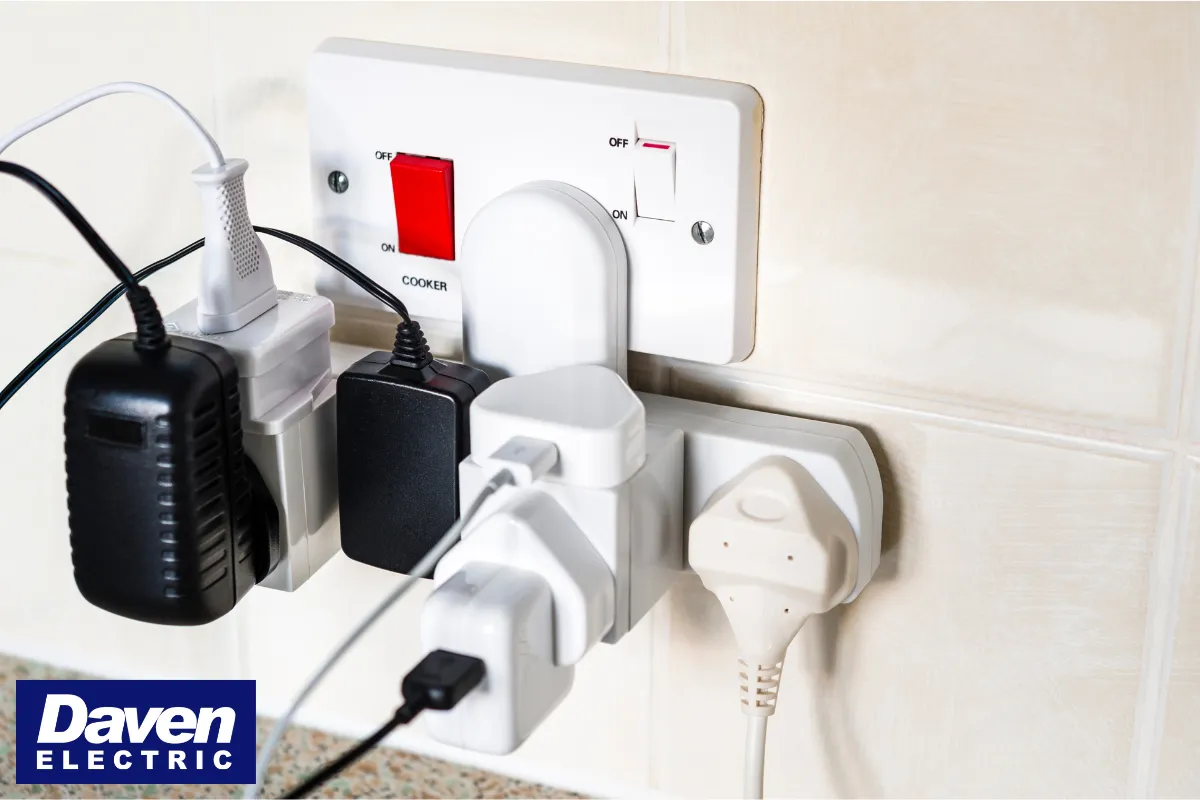
Why It’s a Violation
Overloaded circuits occur when too much power is drawn through a single electrical line, often because more devices are connected than the wiring is designed to handle. This issue is especially common in older Manhattan buildings that were constructed before the digital era, where office equipment, HVAC systems, and computers were less demanding.
What Problems Does It Cause
- Breakers trip repeatedly, causing outages
- Wiring overheats, increasing the risk of fires
- Equipment may become damaged due to an inconsistent voltage supply
How It’s Fixed
Commercial electricians assess the total load on each circuit. They may add new dedicated circuits or upgrade the electrical panel to support a higher capacity. In many cases, they also reorganize the distribution of equipment to balance the electrical load more evenly.
Missing or Improper Grounding
Why Grounding Matters
Grounding provides a safe path for excess electricity to flow in case of a fault or surge. It protects both people and equipment by reducing the risk of shock or damage in the event of a short circuit or lightning strike.
Common Issues
- No grounding present in older buildings
- Ground wires are not connected properly
- Bonding was not performed between the metal parts of the system
Professional Fix
A commercial electrician installs grounding conductors and verifies that all components are correctly bonded. In many cases, older buildings need a full system update to meet current code requirements.
Exposed or Unsecured Wiring
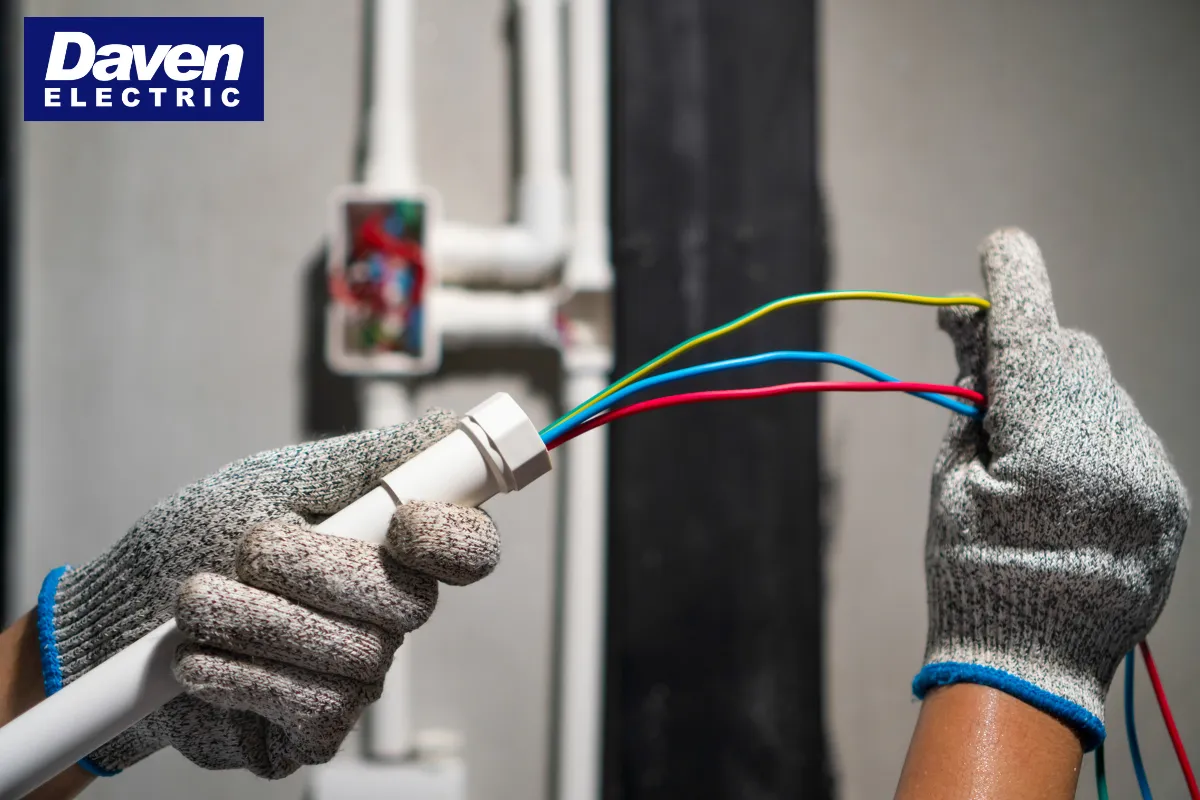
Safety Risks
Wiring that is exposed, dangling, or left outside a protective conduit is a violation of both NEC and NYC electrical codes. This type of error is often seen in mechanical rooms, storage areas, and unfinished construction zones.
What It Leads To
- Risk of electric shock from accidental contact
- Damage from rodents, water, or physical impact
- Short circuits and fire hazards
How Electricians Correct It
Licensed electricians re-route wires into approved conduit or enclosures, ensuring the system is both safe and compliant with regulations. They also verify that all junctions are properly sealed and inaccessible to unauthorized handling.
Undersized or Oversized Wiring
Definition
The gauge of electrical wire must match the expected current load. Using the wrong size—either too large or too small—can create major safety issues.
Common Triggers
- HVAC installations using old circuits
- Data centers or IT rooms added without electrical upgrades
- Renovations where old wiring wasn’t updated
Correction
Commercial electricians measure the actual load and replace the wire with one that has the proper ampacity rating. This ensures that the wire can carry the intended current safely without overheating.
Incorrect Installation or Absence of GFCI Outlets
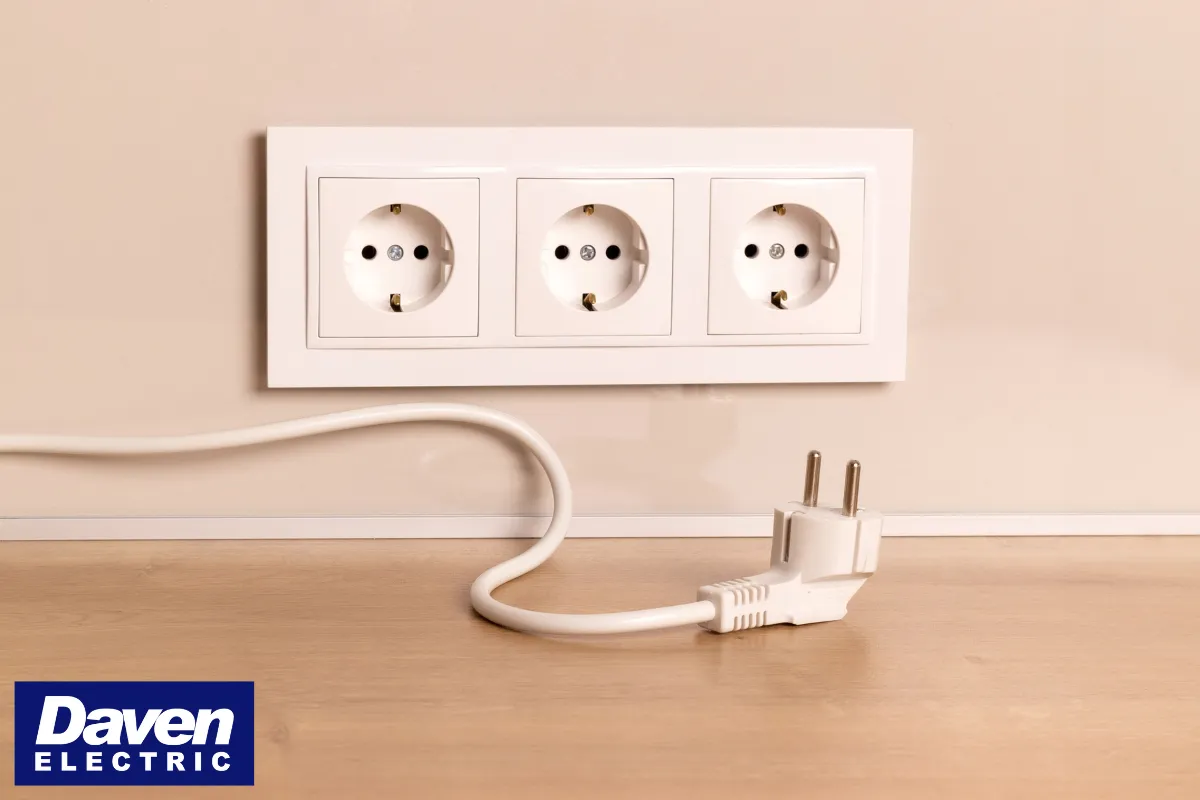
What is a GFCI?
A Ground Fault Circuit Interrupter (GFCI) is a special type of outlet designed to shut off electricity instantly if it detects a ground fault—an unintended path between a source of current and a grounded surface.
Where They’re Required
GFCI outlets are mandatory in areas where moisture or water is present, such as:
- Commercial kitchens
- Bathrooms
- Rooftop service areas
- Outdoor outlets
Why It’s Critical
GFCIs protect people from serious shocks and can even save lives. Their absence in wet environments is one of the most frequently cited violations.
How It’s Addressed
Electricians replace standard outlets with GFCI models and thoroughly test them. They also check that the outlets are wired correctly, as reverse polarity or improper grounding can cause these outlets to malfunction.
Outdated Electrical Panels
Problem Overview
Many older buildings in Manhattan still rely on electrical panels that are decades old. Some even use fuse boxes instead of modern circuit breakers.
Dangers Involved
- Fuse panels are more prone to fire due to manual fuse replacements
- Limited space for expansion
- Inability to meet modern power needs
Professional Solution
A commercial electrician upgrades the panel with a modern circuit breaker system that includes surge protection, improved safety features, and capacity for future expansions. This also facilitates easier maintenance and improved insurance compliance.
Non-Compliant Emergency Lighting and Exit Signs
Legal Requirements
Every commercial space must have emergency lighting and illuminated exit signs that remain operational during a power outage. These systems must be hard-wired and connected to a backup power source.
Common Violations
- Exit signs without battery backups
- Burned-out bulbs
- Fixtures not tested regularly
- Lights installed in non-visible locations
Correction Method
Electricians inspect, repair, or replace these systems and connect them to an emergency circuit. They also help establish regular maintenance and testing schedules to prevent future violations.
Use of Unlicensed or Unpermitted Electrical Work
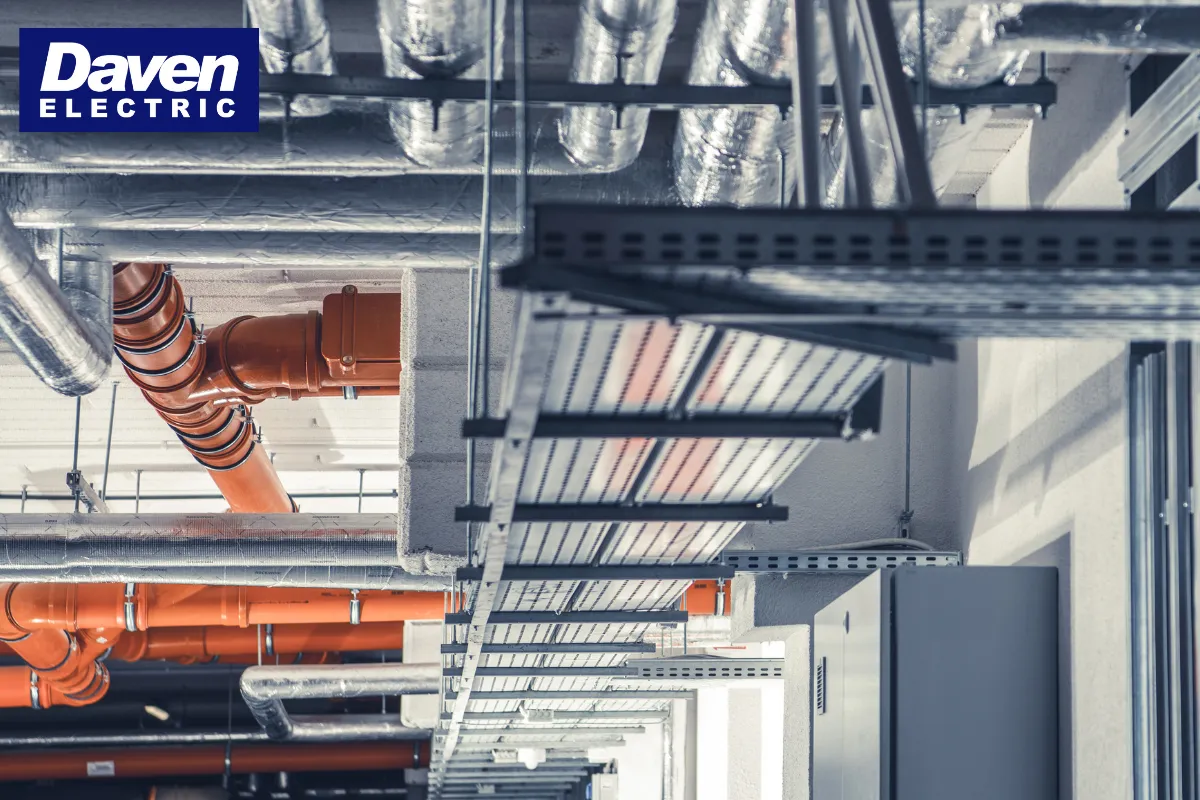
Why It Happens
Property owners sometimes hire unlicensed contractors or handymen to cut costs. This leads to installations that ignore code requirements and create more problems than they solve.
Red Flags
- Inconsistent wire colors or sloppy workmanship
- No permit records with the Department of Buildings
- Frequent issues with inspections or violations
What Commercial Electricians Do
They inspect the full system, remove unsafe or non-compliant work, and bring everything up to code. They also pull the necessary permits and schedule inspections to verify the corrections.
Local Code Differences in Manhattan, NY
What Makes NYC Unique
Manhattan’s electrical regulations are stricter than the national standard. Buildings here must comply with:
- Additional conduit and grounding requirements
- Strict fireproofing protocols
- Specialized rules for mixed-use and high-rise buildings
Why Local Expertise Matters
Only commercial electricians who regularly work in Manhattan fully understand the city’s specific codes and enforcement practices. Hiring someone without this experience can result in delays, violations, or failed inspections.
How to Stay Code-Compliant in Manhattan’s Commercial Spaces
Staying compliant isn’t about guessing—it requires planning, proper maintenance, and partnering with experienced professionals. Here are a few ways to keep your property up to code:
- Schedule annual inspections by a licensed commercial electrician
- Maintain records of permits, repairs, and upgrades
- Avoid DIY fixes and ensure all work is professionally handled
- Stay informed about code changes from the Department of Buildings
Electrical safety and legal compliance are never optional. They’re essential for protecting your investment, your employees, and your customers.
A Final Thought on Electrical Safety and Compliance
As busy as Manhattan is, electrical problems can sneak up on even the most careful property managers. Staying ahead of violations isn’t just about passing inspections—it’s about maintaining a safe, efficient space where people can work and visit without risk.
Being proactive with your electrical systems not only protects your building from hazards but also helps avoid surprise penalties, insurance issues, and business interruptions. That peace of mind is always worth it.
Manhattan Commercial Electrician – Daven Electric Corp.
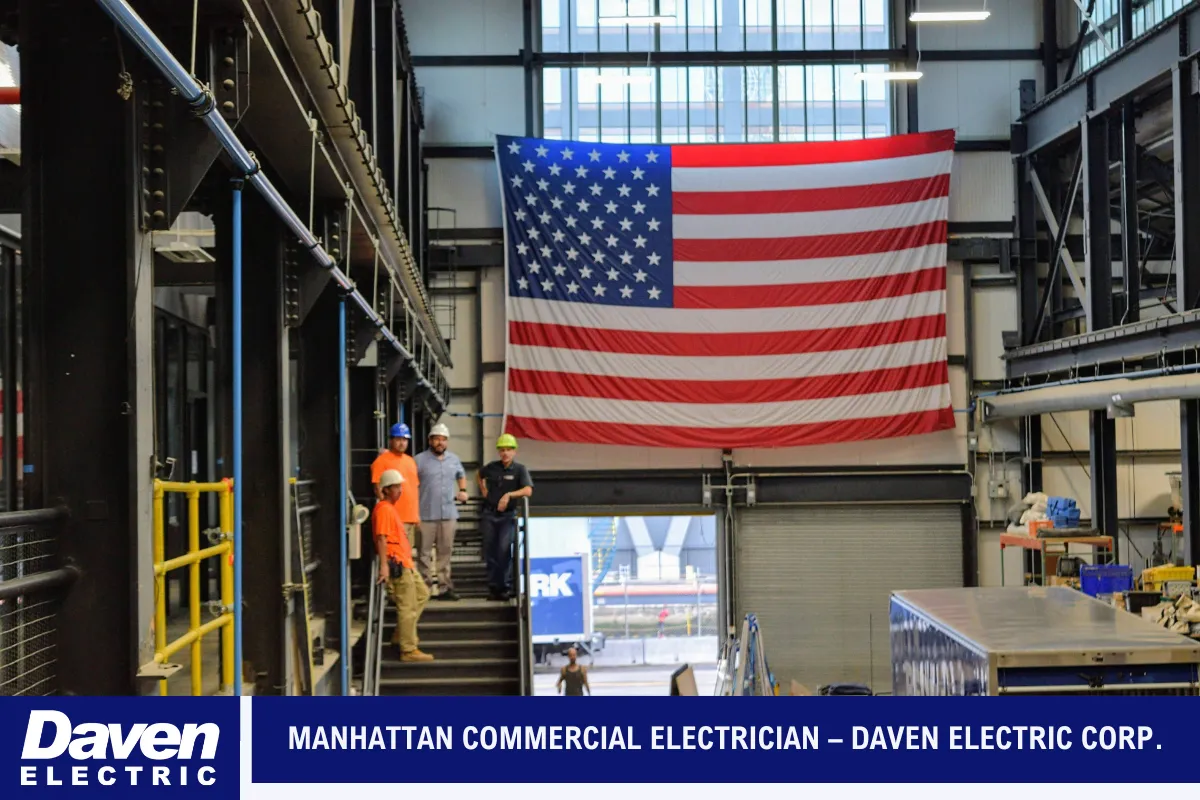
Looking for reliable help to fix electrical code violations in Manhattan? Daven Electric Corp. has the tools, experience, and dedication you need! We handle everything from fixing unsafe wiring to complete electrical upgrades, ensuring your building meets both local and national electrical standards at all times.
Our electricians are trained to work in all types of commercial spaces—including offices, retail stores, restaurants, and industrial buildings. Whether you need emergency repairs or a full system inspection, we’ve got it covered.
Contact us today at (212) 390-1106 to schedule a service or get a quote!
Frequently Asked Questions About Commercial Electrical Code and Repairs
1. What causes frequent power outages in commercial buildings?
Frequent power outages in a commercial building often stem from overloaded electrical systems, outdated breaker panels, or faulty wiring. In older properties across Manhattan, electrical panels may not be able to support today’s high-tech equipment, leading to system strain. A tripping breaker is a clear sign that your system needs attention.
Common causes include:
- Overloaded circuits from too many devices
- Deteriorating service panels or breaker panel faults
- Poor wiring repairs or previous unlicensed electrical installations
If your building experiences regular outages, it’s crucial to have a commercial electrician inspect the setup. They can identify weak points and recommend solutions such as panel upgrades or even standby generator installations. Investing in a backup generator helps maintain operations during utility failures. It supports compliance with emission standards when using energy-efficient alternatives.
Prompt attention to these issues prevents disruptions and reduces the risk of long-term electrical problems that could affect business continuity.
2. How do I know if my breaker panel needs repair or replacement?
Breaker panels are the heart of any electrical system. They control power flow and protect your property from electrical surges. Over time, they wear out or become insufficient for modern power demands, especially in older commercial buildings in Manhattan.
Signs your breaker panel needs repair or replacement include:
- Frequent tripping breakers
- Burnt smell or discoloration near the panel
- Flickering lights throughout the building
- Unexplained power outages or inconsistent voltage
- Warm or buzzing service panels
A commercial electrician can evaluate your system to determine whether breaker panel repair or a full replacement is necessary. They’ll also verify that your setup complies with current NEC codes and emissions standards, particularly when integrating energy-efficient lighting or backup generator systems. Upgrading your panel improves safety, boosts power reliability, and supports future expansion or electrical installations.
Don’t wait for failure—schedule an inspection to ensure your panel supports your building’s growing electrical needs.
3. Why is my office experiencing flickering lights and outlet issues?
Flickering lights and malfunctioning outlets are often early indicators of underlying electrical problems in commercial properties. These issues can point to loose wiring, outdated outlets, or problems within the breaker panel itself.
Here’s what could be causing them:
- Loose wire connections behind outlets or inside walls
- Overloaded or aging electrical panels
- Damage from previous substandard outlet repair services
- Voltage fluctuations from an inconsistent power supply
- Incompatibility with energy-efficient lighting systems
If left unaddressed, these symptoms can escalate into more serious hazards, such as fires or prolonged power outages. An experienced commercial electrician will conduct a thorough inspection, ensuring that all connections are secure, wiring repairs are completed properly, and outlets are grounded and compliant with current codes.
Regular electrical repairs help protect your commercial building’s infrastructure, keeping employees and equipment safe. In some cases, upgrading to new outlets or installing modern service panels is the best long-term solution.
4. What should I do during a tripping breaker or sudden shutdown?
A tripping breaker signals that your system is overloaded or that there’s a short circuit somewhere. In a commercial setting, this disruption can affect operations and may indicate more severe electrical issues. Here’s a quick guide on what to do:
- Identify the Source: Unplug devices connected to the affected area.
- Reset the Breaker: Flip the breaker fully off, then back on.
- Check for Patterns: If it happens repeatedly, that’s a red flag.
Persistent tripping can be caused by:
- Undersized electrical panels
- Faulty wiring or bad electrical repairs
- Outdated breaker panel components
- Improper load balancing in your electrical systems
Call a commercial electrician immediately. They can determine whether you need breaker panel repair, wiring repairs, or even new electrical installations. In some cases, adding a standby generator for backup support ensures critical systems remain online even during failures, while also aligning with modern emissions standards.
5. Are standby generators worth installing in a commercial building?
Absolutely. In Manhattan, where power interruptions can disrupt businesses and result in thousands of dollars in lost revenue, standby generator installations provide essential backup during outages. They automatically switch on during blackouts, keeping your essential systems operational without delay.
Benefits of standby generators include:
- Continuous power to servers, security systems, and lighting
- Protection against data loss and hardware damage
- Enhanced safety for staff and clients
- Compliance with emissions standards when using modern low-emission units
Unlike portable units, these generators integrate with your building’s electrical systems and are controlled via service panels. They’re especially useful in buildings where critical services, such as elevators, refrigeration, or communications, must operate 24/7.
A commercial electrician can help you choose and install a system that meets your power needs, space requirements, and budget. With proper planning and wiring repairs, you’ll be protected from unexpected power failures and ensure business continuity.
Read more: Signs You Need a Commercial Electrician in Manhattan, NY to Check for Electrical Code Issues

